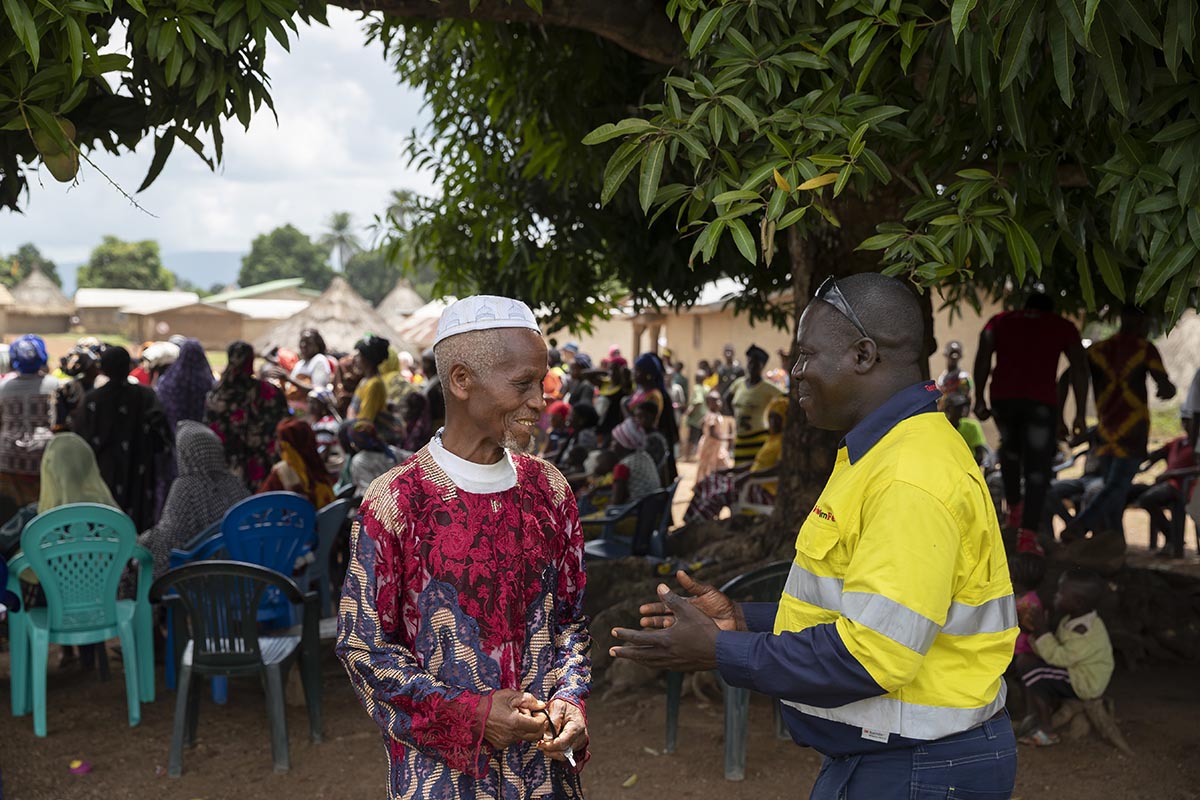Mining and processing, by its very nature, can have disruptive impacts on the environment, including on local communities. At the same time, mining also delivers significant economic and social benefits to communities, including employment, local business development, tax and royalty streams, as well as education and health programmes. Our goal is always to maximise these benefits and minimise any disruptive impacts as much as possible.
As part of our development and execution planning, we prioritise the prevention and minimisation of risks and impacts by conducting detailed assessments in consultation with local communities, and by following robust industry-leading standards and practices that are in line with – and often go beyond – local regulations.
Our original Social and Environmental Impact Assessment (SEIA) completed in 2012 and currently under review, was the largest public consultation ever undertaken in Guinea, soliciting the views and opinions of over 10,000 people. We stand by this approach because we believe that involving our local communities and stakeholders is pivotal to understanding, addressing and supporting the needs and expectations associated with a project of national significance.
Uninterrupted support
As part of our compliance commitments throughout the project’s care and maintenance period, 2016-2020, Rio Tinto upheld contributions of US$500,000 annually to community development, which was disbursed methodically, yet broadly, in order to maintain multiple support mechanisms. These included: learning and basic literacy training for local tradesmen (carpenters, masons), support for agricultural and livestock projects, market gardening cooperative development, as well as the modern butchery initiative to encourage procurement from local livestock herders and meat producers. With a grant of US$2 million over three years, we are currently also continuing invest in our female vocational training programme to support the establishment of women-led businesses in the community.

How we work with communities
Everywhere we work, through all stages of the life of our operations, we respect and support all internationally recognised human rights, in line with the United Nations’ Universal Declaration of Human Rights and the United Nations Guiding Principles for Business and Human Rights.
Our teams – everyone from archaeologists and economic development experts to human rights specialists and our operational leaders – work in partnership with our communities to understand how our work affects their lives, their culture and their heritage. By doing so, we can respond to community concerns and work to optimise benefits and reduce negative impacts, both for the local community and for the company.
Throughout the history of our involvement in the Simandou project, we have maintained regular community consultation forums and sessions designed to maintain dialogue with local communities by addressing questions, concerns and additional opportunities to provide support. This work continues actively as we progress through to the forthcoming phases of construction and operation.
When we engage with our communities, we aim to:
- Interact proactively, early and often
- Listen actively to community views
- Communicate openly about our company and proposals
- Provide adequate resources for engagement activities
- Invest in relationships for the long term
- Integrate engagement into the business plans of all functions and units
- Respect cultural protocols
- Hear the full range of views and interests, including minority and divergent views